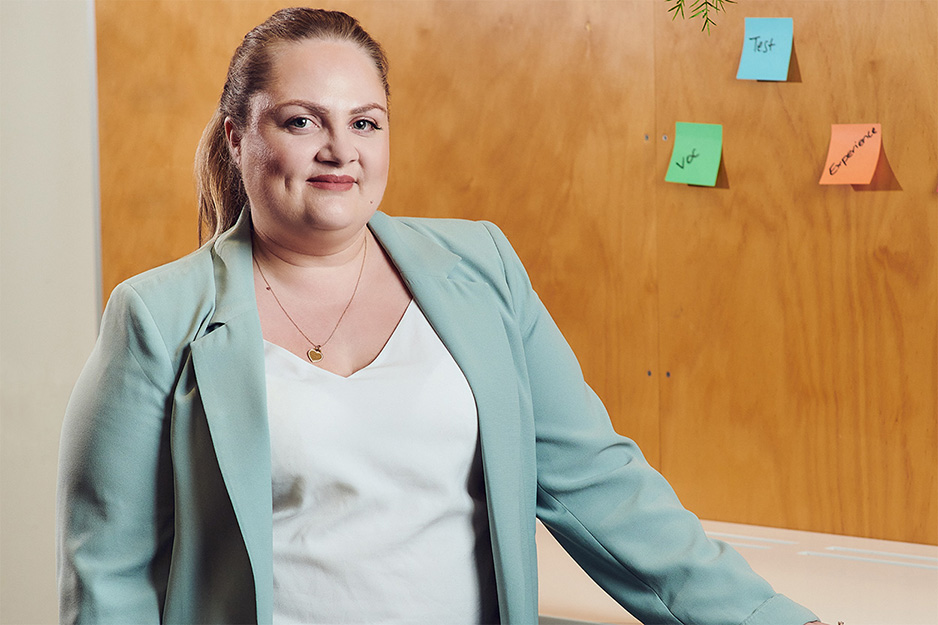Do you have a question? Want to learn more about our products and solutions, the latest career opportunities, or our events? We're here to help. Get in touch with us.
Do you have a question? Want to learn more about our products and solutions, the latest career opportunities, or our events? We're here to help. Get in touch with us.
We've received your message. One of our experts will be in touch with you soon.

To help companies live up to ever-increasing expectations around customer service, Datacom’s Experience Practice team provides external feedback and advice to help organisations challenge their existing processes.
“You can think of us as a bit of an agitator or the voice of reason,” says Chloe Cifelli, Associate Director – Experience & Insights. “We help companies shake-up preconceived assumptions about their customers and reflect on what is and isn’t working.”
The Experience Practice team works to dissect customer journeys and challenge inflexible ideas about business processes. By understanding who the customer is at their deepest level, Chloe and her team can discover any adverse impacts of historical business practices. One of the first steps is often setting aside the notion that existing processes are good enough and ‘if it ain’t broke, don’t fix it.’
Experience Practice comprises CX experts from a range of different backgrounds. Chloe’s team comes at CX from all angles, drawing on insights from long-term Datacom employees and experience in a range of sectors including health, tourism and travel.
“The contact centre is only one piece of an end-to-end client experience, so we have focused on diversifying our team and bringing together a wide range of experience and perspectives on CX,” says Chloe.
The shift in consumer expectation has been significant over the last two years, with COVID playing a major part. Customers began demanding more connection and personalisation from companies, and those who valued their customers benefited greatly from that.
“The companies that were successful during COVID were the ones that put their customers first. Any company that put profit before people, or failed to communicate and nurture connections, will have damaged customer relationships, and their brand, and will find it harder to retain existing customers and attract new ones.”
Looking at companies that have successfully recognised and catered to the voice of the customer, Chloe says start-ups are often really good at CX and one reason for this is that they aren’t constrained by the legacy systems that may hold back more established businesses. They can build processes from the ground up that are focused on delighting the customer, first and foremost.

“We're seeing customers flock to these companies because they want to be understood, to feel like companies know who they are and that they are rewarded for being a consumer. Consumers are unlikely to settle for anything less if there's a competitor who can offer that experience,” says Chloe.
Many companies have taken stock of this shift and are already looking to adopt this approach, by making meeting customer needs and expectations a business priority.
“There is more alignment now, at an executive level, that if you lead with the customer experience, and you make sure your metrics align to what customers expect of you, you’re more likely to be successful,” says Chloe. “It’s not a coincidence that some of the newest CEOs that are coming up the ranks are Chief Customer Officers.”
One of the many ways that the Experience Practice delivers critical insights is by understanding customer experience through the lens of employee experience.
“Our biggest point of difference is that we don't ask management. We ask the employees who are doing the work, and we elevate their voice. Imagine a world where your frontline staff have a position at the table where decisions are made,” says Chloe. “How might those staff influence change management and adoption of new transformation projects because it was their idea, they feel heard, and they’ve contributed – they have a voice.”
“If we started bringing more of our staff into these conversations, we'd get more solutions right from the outset or access the information we need to improve existing processes and solutions.”
The Experience Practice works closely with other teams across Datacom to deliver businesses an unbiased voice around customer issues and to share insights into the most effective way to solve those issues.
“We sit outside of operations … and we’re trusted to have a really good point of view and just sort of cut through some of those politics that you see in businesses,” says Chloe.
“We put people at the centre of our work and transparently lay out recommendations designed to improve the experiences of employees and customers.”
Looking ahead, Chloe says the future of CX is in greater personalisation of service and experiences.
“Advances in technology, such as virtual assistants and data management, will allow for much greater capacity creation and enable companies to focus on delivering experiences that really delight their customers.”